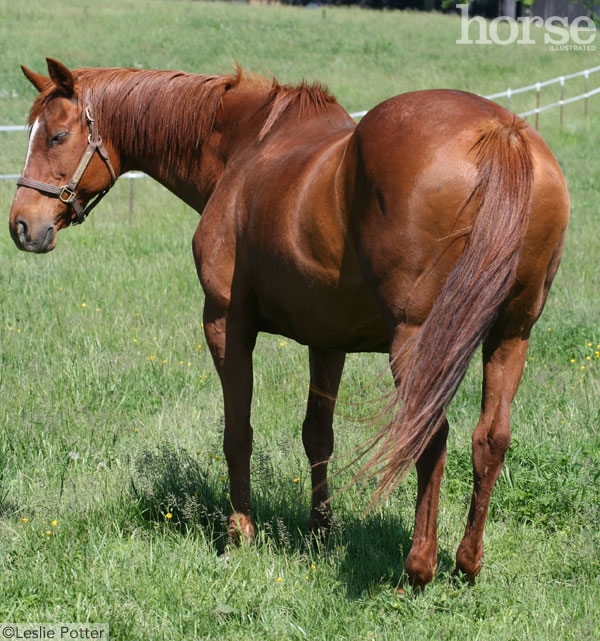Vital Signs
Knowing how a healthy horse looks and acts can help you catch illnesses and injuries early. Here’s a rundown of normal vital signs and red flags that could signal a problem:
General Demeanor and Behavior
Normal: Alert, interested in surroundings and responsive; moves easily without pain or incoordination; eats almost constantly if possible.
Red flags: Disorientation, incoordination, appetite loss, lameness, restlessness, inappropriate sweating, anxiety, tooth grinding, startling or shying when touched in the painful area, looking at the belly, squinting.
Temperature
Normal: 99.5 to 101.5 degrees Fahrenheit in adults; 100 to 102 in foals. Excitement or exercise will increase it.
Red flag: Elevated temperature without excitement or exercise.
Heart Rate
Normal (at rest): 32 to 44 beats per minute in adults; 60 to 110 in foals.
Red flag: Increased heart rate without an obvious reason, such as excitement or exercise.
Respiratory Rate
Normal (resting): Six to 16 breaths per minute in adults; 25 to 60 in foals.
Red flags: Increased respiratory rate without an obvious reason; labored breathing; other signs of respiratory problems, such as coughing or wheezing.
Mucous Membranes
Normal: Pale pink color; capillary refill time (CRT), a way of evaluating cardiovascular function, should be one to two seconds. Check CRT by pressing on your horse’s gum with your finger and observing how long it takes for the pink color to return to normal.
Red flags: Excessively pale (whitish) or purple/blue mucous membranes; slow capillary refill time.
Discharges
Normal: Tears and mucus from the eyes or nose should be inconspicuous.
Red flags: Excessive amounts of tears or mucus from the eyes or nose; any amount of pus or blood from the eyes, nose or other orifices.
Excretion
Normal: Urine (normally cloudy) should be easily voided in a steady stream, with no evidence of pain. Manure should be formed and passed without straining.
Red flags: Difficulty urinating or defecating; inability to urinate or defecate; blood in the urine or manure; excessive urination; diarrhea.
Gut Sounds
Normal: Always present.
Red flag: Absent gut sounds, especially when accompanied by signs of colic.
Back to Horse Health Glossary
This article originally appeared in the 2012 issue of Horses USA. Click here to purchase the most recent issue.




